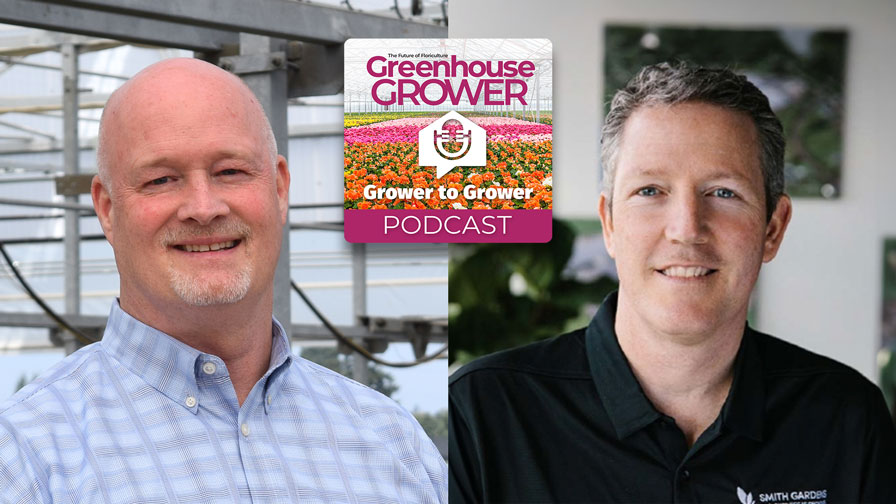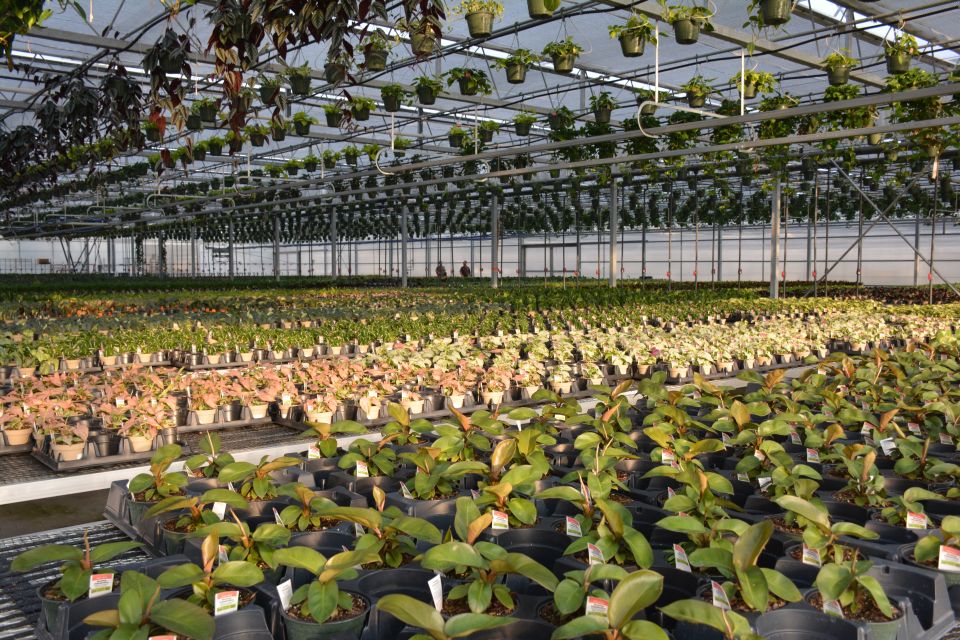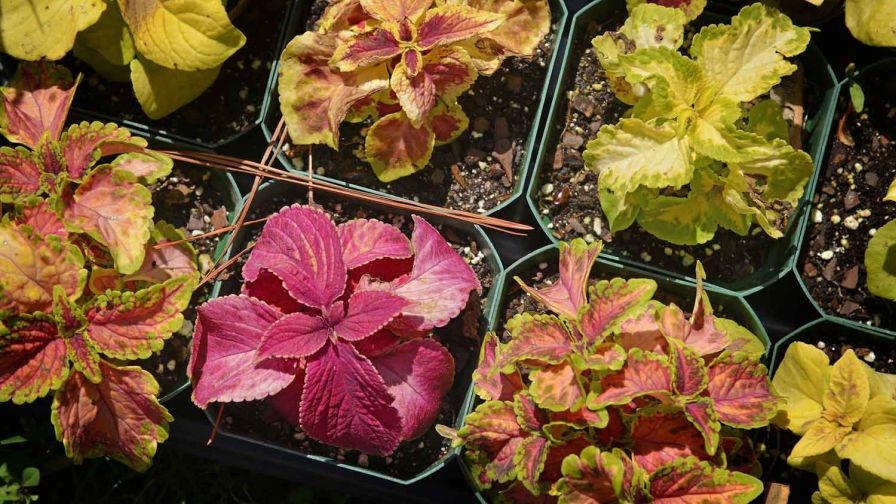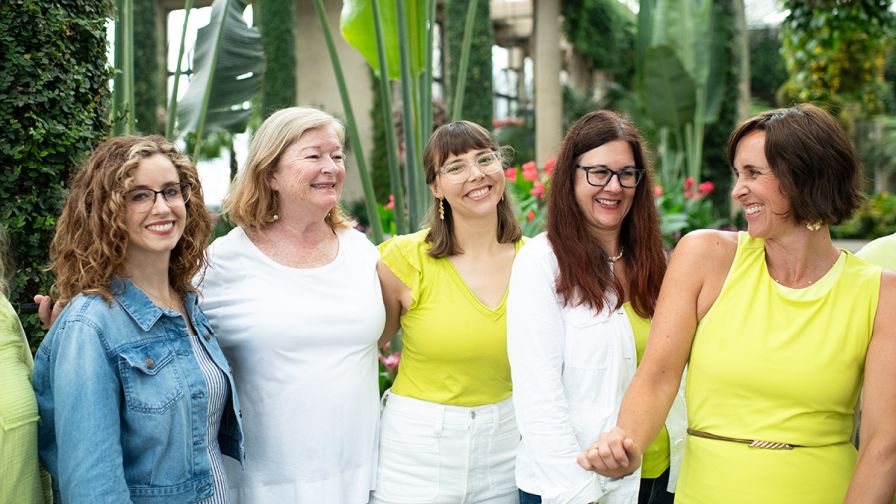Izel Native Plants: The Little Company That Could
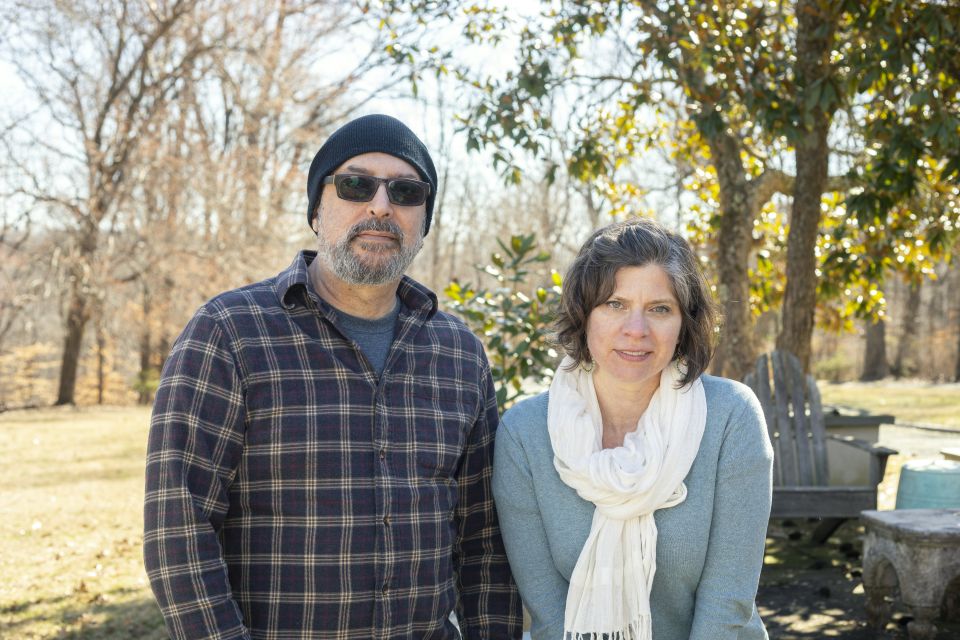
Claudio Vazquez (left) is the big vision person behind Izel Plants. He handles customer service, and along with Shannon Currey, a new addition to the team, writes content and manages data. Amanda McClean (right) is the tech powerhouse that manages the website and database and keeps track of plant inventories. Photo: Benjamin Tankersley Photography
Native plants have been a small, mostly untapped niche market in the green industry, but that’s changing. Izel Native Plants is one trailblazer making a difference by converting consumers over to a different way of perceiving, using, and sourcing native plants. This small online retailer may not be the Amazon of selling native plants yet, but small doesn’t mean it is not mighty.
Avid gardeners Claudio Vazquez and Amanda McClean founded Izel Native Plants after experiencing frustration when trying to find reliable native plant information online and purchase native plants for their home gardens. The native plant information available at the time wasn’t as user-friendly as Vazquez and McClean knew it could be.
“We saw gardening as something you’re trying to solve,” McClean says. “A book often doesn’t allow you to inject filtration points such as groundcover, bloom times, or geographic nativity, etc. The books didn’t spit out an answer in the way a website could where you are allowed to put in all those challenges you are trying to solve for.”
What the co-founders couldn’t have known is the time and expense it would take to launch the website in 2014. IzelPlants.com is the product of countless consultations and discussions with gardeners, institutions, and plant people of every level. Setting up its database was no easy feat. Vazquez and McClean worked off the USDA plant database, a public-domain resource riddled with data gaps that they had to fill with reliable, referenced information for their website. Their aim was to provide a resource on North American native plants with detailed plant information, including species characteristics, descriptions, cultivation guidelines, county-level maps of recorded native range, and more. The database on Izel’s website today stands as a testament to their hard work and determination. Vazquez and McClean continue to add information to the database regularly and go through a rigorous process of cross-referencing to ensure accuracy.
Partnerships Fill the Gap Between Wholesale and Retail for Consumers
Izel Native Plants has a unique business model that consolidates the inventories of several native plant nurseries into a user-friendly, one-stop-shop website. Wholesale products are directly available to retail consumers who might not meet the criteria to buy wholesale.
“One of the strong points of partnering with multiple nurseries is that any one of them has, at least within this niche, a relatively large list of things they sell,” McClean says. “What’s even larger is consolidating the inventories across several growers. It allows for a certain stability from a customer point of view because if one grower’s crop is out of stock, another one has a new crop coming on. It seemed like a benefit to the end user for us to have multiple growers, both from the large breadth of offering and from the stability of the supply.”
Izel Native Plants acts as a conduit for feedback from the retail side for its grower- partners, collecting and synthesizing data on consumer interest in products and species that are in demand. It handles the ordering, marketing, and customer service that growers sometimes have difficulty juggling alongside the demands of plant production. The Izel website includes microsites dedicated to the inventories of each individual grower-partner. These microsites give Izel’s customers a quick link to use if they have a preferred source for their plant material.
“For our wholesale grower partners and our customers, we’re more than a sales channel,” Vazquez says. “We get to know growers and their operations, and we do the same on the customer side. We look for and address consumer pain points and try to understand what they need to make good choices. That includes keeping up on what’s happening in the trade and related fields, including botany, landscape design, horticulture, and ecology.”
A Rising Tide Lifts All Boats
John Mark Courtney of Kind Earth Growers was one of the first plug growers to work with Izel. He says one thing Vazquez told him still stands out from those early conversations. Vazquez said that rather than Izel receiving a heavy wholesale discount on the plants Kind Earth supplied, he wanted to see Kind Earth Growers receive prices for its plants that reflected their quality and the hard work invested into growing them.
“It worked out fantastic that first year because right away I got marketing on their website,” Courtney says. “I started selling in September and by the time November rolled around, I had sold out of almost everything I was selling through Izel.”
For Vazquez and McClean, their efforts are intended to not only expand Izel, but to also bring everyone along for the ride. They refer to this as “lifting all boats.”
“We want to lift all boats by addressing public gardens, landscape architects, professional groups, and more,” Vazquez says. “We want to lift the idea of native plants within the industry. If the industry rises to the occasion and pays more attention to native plants, it benefits us and everyone else we lift along with us.”
North Creek Nurseries’ Steve Castorani has found Izel to be a great outlet to send people to that can’t buy wholesale. While he has had to ship in smaller quantities to supply plants for these types of consumers, Castorani says the volume has more than made up for it.
“Claudio and Amanda believed in themselves and their vision,” he says. “They came at things from a different perspective. Their website is very dynamic, and they are good at promoting it to consumers. Their efforts uplift everyone and help drive overall demand for the industry.”
Mandy Leifheit of Pizzo Native Plant Nursery is also thrilled she no longer needs to turn people away who are interested in native plants but can’t buy directly from the nursery. Her website includes a link to Pizzo’s dedicated microsite on Izel, where Leifheit can refer people to buy her plants. One of the things she has valued most about her partnership with Izel, she says, is the ability to get native plants into the hands of homeowners and have homeowners value them.
“Izel is good at educating people,” Leifheit says. “Education is the biggest part of selling and promoting native plants because many people are either unaware of them or unfamiliar with how to use them. I refer people to Izel’s e-newsletter often because the great tools, techniques, and ideas they share make people think differently about native plants.”
Educational Outreach Changes Perceptions
Vazquez and McClean are now taking the next steps to address Izel Native Plants’ broader vision of spreading the word about native plants through educational outreach. Shannon Currey, a former Marketing Director for Hoffman Nursery, is the newest addition to the team. She will help build out more content and increase Izel’s educational reach. Currey will be hitting the speaker circuit hard, writing blog posts, and basically serving up education on native plants in usable chunks to counter some of the early messaging about native plants that was off the mark.
Some of the assertions, such as native plants are more drought tolerant or tougher, were misguided and have been debunked, according to Currey, who says now the focus is on stewardship and the role of native plants as part of a greater whole. Native plants are social entities that not only have important and critical relationships with native fauna (insects in particular), but also with other plants with which they evolved, she says. Understanding those relationships and building ecologically sound plant communities that will thrive is fundamental to Izel’s mission. That understanding of relationships and plant communities is changing people’s perceptions.
“Traditional gardening relies on breeding for aesthetics and for survival in highly managed conditions. But native plants are largely untamed, and that’s why they’re so important,” Currey says of the critical role of native plants. “They play a vital role in landscapes, especially as people look for meaningful ways to contribute to the health and well-being of their communities. We want to refocus the adage of ‘right plant, right place.’”
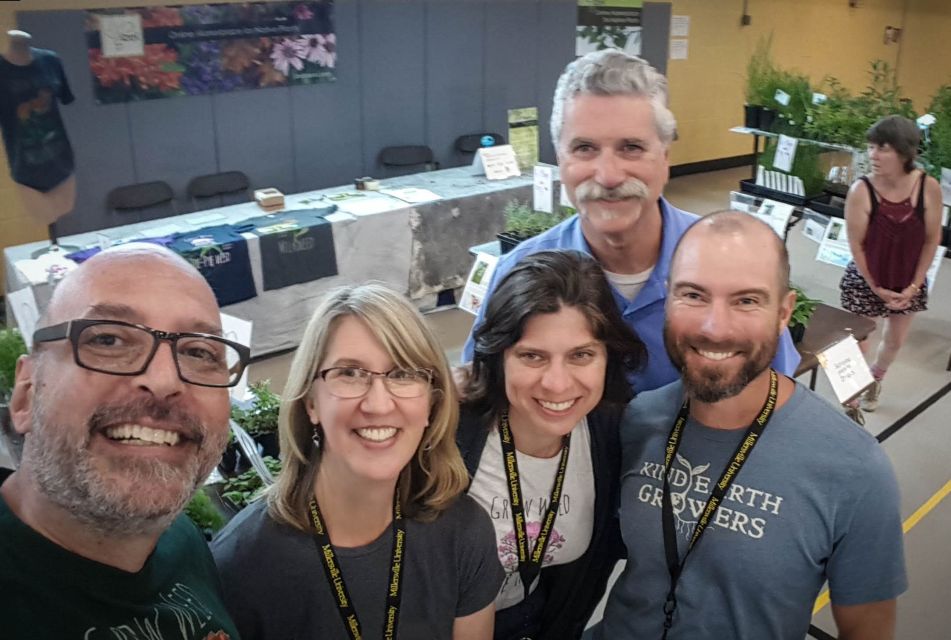
Izel Native Plants co-founders Claudio Vazquez (left) and Amanda McClean (middle) maintain close relationships with their grower partners that are just as much friendships as they are business associations. Also pictured: Shannon Currey (Izel Plants, second from left), Steve Castorani /North Creek Nurseries (back), and John Mark Courtney/Kind Earth Growers (right). Photo: Izel Native Plants
The Grower-Partners Behind Izel Native Plants
- Izel Native Plants partners with 10 of the best-in-class native plant growers from around the country to supply its customers with nursery propagated plants that are ethically collected and grown without the use of neonicotinoids.
- Archewild (Pennsylvania) is an ecological restoration and sustainable landscape services firm offering a wide selection of ecoregion-specific and seed-grown native plants sourced within the Northern Piedmont and surrounding areas.
- Carolina Native Nursery (North Carolina) is a specialty grower of native shrubs with a focus on native azaleas, rhododendron, and Mountain Laurels.
- Delmarva Native Plants (Maryland) is a wetland nursery that grows large numbers of Spartina alterniflora (smooth cordgrass) and Spartina patens (salt meadow hay) to support living shoreline projects in the region.
- Hoffman Nursery (North Carolina) specializes in ornamental and native grasses, and sedges, shipping liners to wholesale customers across the U.S.
- Ironweed Native Plant Nursery (Kentucky) obtains local source seed from multiple locations within the Interior Low Plateaus Physiographic Province of Kentucky to supply wildflowers, vines, woodies, grasses, and sedges.
- Kind Earth Growers (Pennsylvania) cultivates flowering perennials, grasses, and sedges using sustainable production methods. It also supplies aquatic, emergent, and wetland plant species on the East Coast.
- North Creek Nurseries (Pennsylvania) is a wholesale propagation nursery that specializes in starter plants or plugs of perennials, ornamental grasses, ferns, vines, and shrubs, with an emphasis on plants native to the eastern U.S.
- Pizzo Native Plant Nursery (Illinois) specializes in native plant plugs and has a stellar reputation as one of the largest growers in the Midwest with more than 25 years of ecological restoration science behind its products and services.
- Taylor Creek Restoration Nurseries (Kansas and Wisconsin) is one of the largest plug and seed producers of mid-western ecotype native species.
- Tennessee Naturescapes (Tennessee) grows native trees, shrubs, wildflowers, ferns, and grasses for a wide variety of landscapes.
Why Izel?
Izel (pronounced eye-Zel) means unique. The word originates from Nahuatl (pronounced NAH-what), a dialect spoken by the Aztecs dating back to the fifth century A.D. Nahuatl is one of the oldest written languages native to North America. Izel Native Plants’ logo is based on the pictograph Xochitl (So-cheel), which means flower. When you combine the two, you get “unique flower.”




